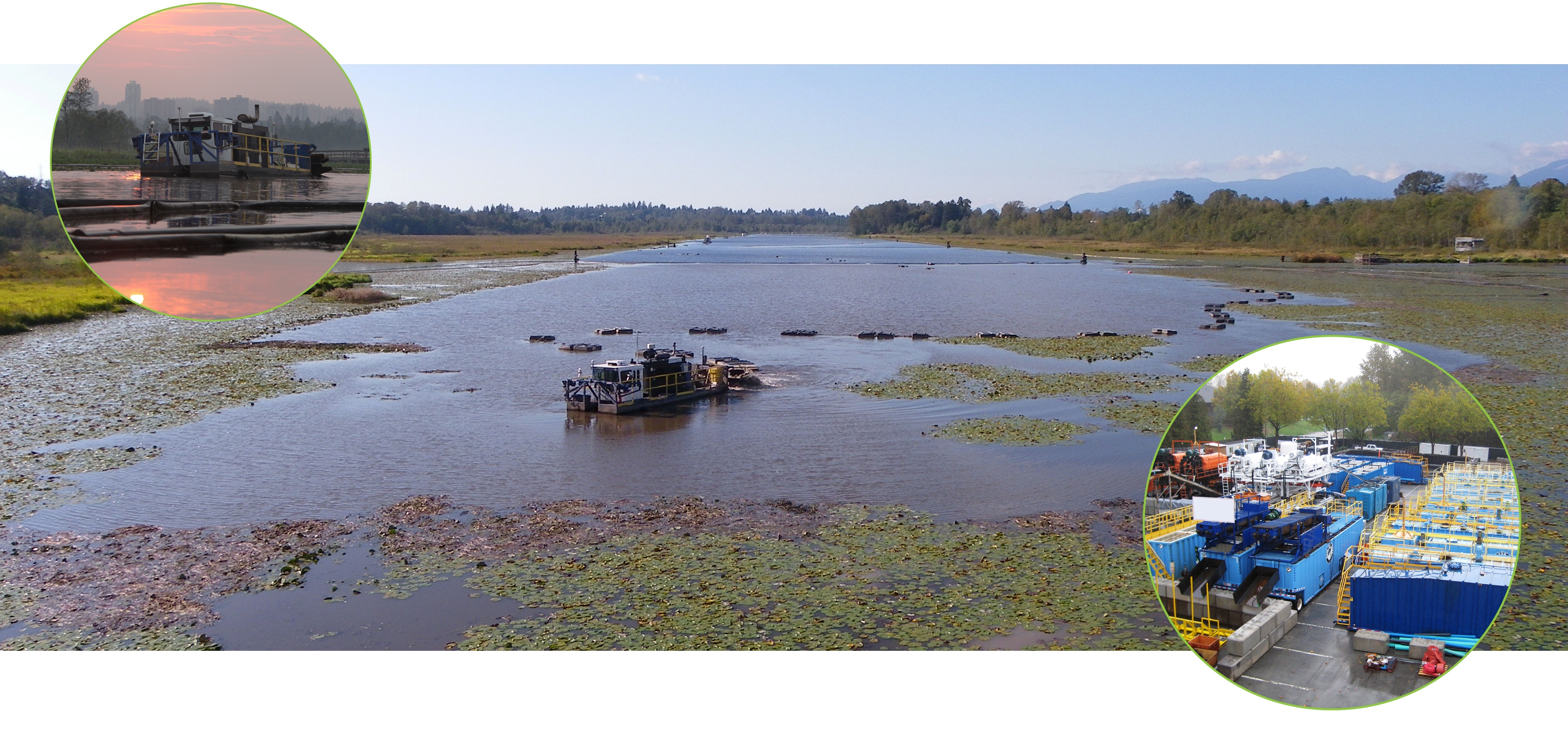EMA of BC Award for Site Remediation
Awarded to: Tervita
Environmental Manager: Warren Sandes, P.Eng., Tervita
Project Title: The City of Burnaby’s Burnaby Lake Dredging Project
Tervita partnered with the City of Burnaby from September 2009 to May 2011 to rejuvenate Burnaby Lake through dredging and water treatment. The goal of the project was to remove 200,000 cubic metres of sediments from Burnaby Lake to improve lake depth for international rowing events and to improve water depth within environmentally sensitive areas. By the end of the project, the lake’s depth and overall water quality was vastly improved, resulting in larger open water areas, more opportunities for fish passage, and improved diversity of wildlife habitat.
Challenges of the project included dredging the lake while it was open to the public for rowing and recreation activities, protecting wildlife and endangered species while working with heavy equipment, dealing with intense media and public scrutiny, and developing a turtle imaging process unique to the project.
Design and Build Process
Tervita’s role was to not only execute the project as the contractor, but to design and build the system. Many stakeholders were involved in the decision making process with multiple regulatory bodies potentially involved. Final permitting of the dredging portion of the project was given by Transport Canada through the Navigable Waters Protection Act. In the end, a 3.5 kilometre long work site was built, with a requirement to remove 1,000 cubic metres of sediment a day. Tervita was given a tight timeline of three months to design the system, build the system, and commission the end-of-pipe water treatment plant. All were conducted on time for the client.
Dredging
Over the years, Burnaby Lake had slowly filled with various solids from surrounding industrial and road activities. The goal of the dredging portion of the project was to remove solids from the lake to specific depths in 16 defined zones, as identified by the client. Before dredging, each zone was protected by turbidity barriers and fish-life salvaging was conducted. Dredging activities were then conducted with hydraulic dredges aided by GPS systems and integrated hydrographic survey and dredge positioning systems. Sediments removed included garbage, sands, silts, and decomposed organic material. Up to two metres of sediment was removed from the dredged portions of the lake.
Water Treatment
Tervita commissioned a temporary water treatment plant to handle the significant volume of water that required solids removal. Design flow rates for the process were set at 1,000 gallons per minute. The slurry sucked up by the dredging process was initially filtered for heavy solids, then dewatered by a centrifuge, with a 25% sediment cake transported to a City of Burnaby clean fill site. Water removed from the sediments in the centrifuge process was further treated to meet environmental standards as required for total suspended solids, dissolved oxygen, biochemical oxygen demand and pH prior to being discharged back into Burnaby Lake. The system was altered early on to meet regulatory standards while improving performance of the system for the client. All water was monitored and approved in real-time before being discharged back into the environment. By the end of the project, close to 1 billion litres of slurry was filtered and returned to the lake, and over 220,000 tonnes of sediment was transported to the clean fill site.
Project Results
More than 400 plants and birds – including various endangered species – live around Burnaby Lake, which is one of the few remaining bodies of water within the Greater Vancouver area with such a diverse biosphere. If the dredging work had not taken place, the sediment would have slowly created wetlands and mud flats, changing the ecosystem and thereby reducing the diversity of wildlife. The project resulted in the restoration and preservation of this urban lake ecosystem, and was also the winner of the APEGBC (Association of Professional Engineers and Geoscientists of British Columbia) 2011 Environment Award. Tervita is proud to have been the prime contractor on this project, which will keep Burnaby Lake an active part of the recreation community for years to come.
